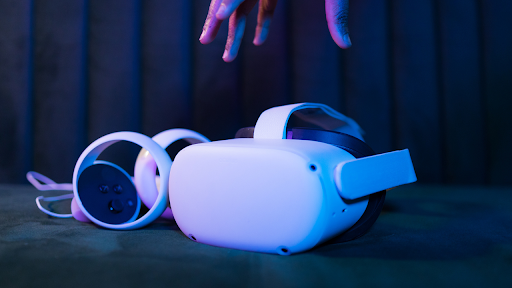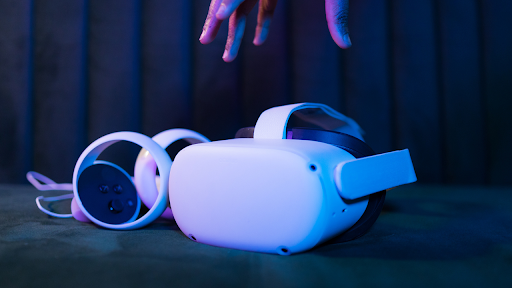
Virtual Reality (VR) and Augmented Reality (AR) have rapidly evolved from being niche technologies to becoming integral parts of various industries. From gaming and entertainment to healthcare and education, VR and AR have found applications that promise to revolutionize how we perceive and interact with the digital world. However, as these technologies grow in popularity and influence, they are also navigating complex legal waters, particularly when it comes to trademark infringement. We sat down with Attorney Robert McKinley, whose extensive experience in intellectual property law has positioned him as a guiding figure in this uncharted legal territory.
Understanding the Basics: Virtual Reality and Augmented Reality
To grasp the nuances of trademark infringement in the context of VR and AR, it’s essential to understand the technologies themselves. Virtual Reality immerses users in a fully simulated digital environment, shutting out the physical world entirely. On the other hand, Augmented Reality overlays digital elements onto the real world, enhancing our perception of reality. Both technologies rely on trademarks for branding, making their interaction with existing trademark law a matter of great importance.
The Grey Areas of Trademark Infringement
“VR and AR technologies blur the lines between the physical and digital realms, often leading to challenges in determining the boundaries of trademark infringement,” says McKinley. He highlights how companies may unwittingly infringe upon trademarks by using similar branding elements within these immersive experiences. “Imagine a scenario where a user interacts with a virtual storefront that bears a resemblance to a real-world store, leading to consumer confusion. Such cases raise pertinent questions about liability and the extent to which traditional trademark law applies.”
Navigating the Evolving Legal Landscape
Trademark law has long centered on protecting consumers from confusion and preserving a brand’s distinctiveness. However, VR and AR introduce complexities that require reevaluation. McKinley emphasizes the importance of establishing guidelines for VR and AR usage, both for existing brands and emerging startups. “Collaboration between legal experts, VR/AR developers, and businesses is essential in creating a framework that safeguards intellectual property while fostering innovation.”
Proactive Measures for VR and AR Developers
“Companies venturing into the VR and AR space must prioritize due diligence when it comes to trademarks,” advises McKinley. He suggests thorough searches of existing trademarks and a comprehensive understanding of the potential risks associated with their virtual or augmented experiences. “By taking a proactive stance, businesses can avoid unintentional infringement and mitigate legal disputes down the line.”
Bridging the Gap Between Trademark Law and Immersive Technology
As VR and AR continue to revolutionize industries, bridging the gap between trademark law and these technologies becomes imperative. McKinley believes in the power of education and collaboration to shape this evolving landscape. “Legal experts must invest in understanding the intricacies of VR and AR technologies, while developers and businesses must grasp the nuances of trademark law. Only through mutual comprehension can we navigate this terrain responsibly.”
Conclusion
The intersection of Virtual Reality, Augmented Reality, and trademark law presents a fascinating yet challenging legal frontier. As these technologies transform industries and reshape digital experiences, questions of trademark infringement demand innovative solutions. Attorney Robert McKinley‘s expertise shines a light on the need for a harmonious relationship between legal frameworks and technological advancements. With his guidance, we can anticipate a future where VR and AR thrive within a trademark-conscious legal landscape.
About Robert McKinley
Robert McKinley is a practicing attorney, degreed Electrical Engineer, and born leader who serves his clients with integrity and an aggressive pursuit of their best interests. He graduated from Widener University School of Law, receiving his J.D. He was a member of the Moot Court Honor Society, Trial Advocacy Honor Society, and Phi Delta Phi International Legal Fraternity for Scholastic Achievement. He has built a 25-year law career specializing in intellectual property, patent & trademark litigation, and local counsel.


;Resize=(1200,627)&impolicy=perceptual&quality=medium&hash=4dea62b2395635780f0a94d731c04066fa6680c8ed445fc3df3fb6533219650b)
;Resize=(1200,627)&impolicy=perceptual&quality=medium&hash=68b6ac3a0647aba6823d2bff1e5e2b312291b8ee8141f79b6ff034a86f0d0216)
;Resize=(1200,627)&impolicy=perceptual&quality=mediumHigh&hash=83bbc7e16d20daaaf67318e052cd2bdfca8049b76edf4b7be3b91374807c192a)
;Resize=(1200,627)&impolicy=perceptual&quality=medium&hash=c255c119d2e1c707e82f3cc0eae63bbce0bf72da07b719a35834e492e29f9243)
;Resize=(1200,627)&impolicy=perceptual&quality=medium&hash=441895cece859ea5bc1a88d008b874b847e7e05dc9b97cc1fd298cbc16609a5f)







;Resize=(1200,627)&hash=c934a2470d30764a7316eb93537c41710cec819973cb467069074c13667c5172)
